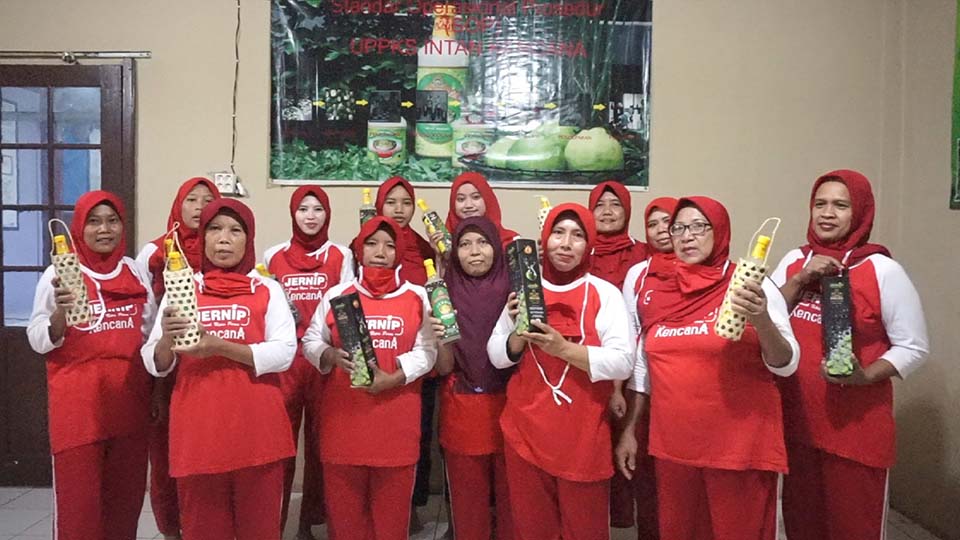Background

conventional plastic and can be used
for a variety of products and applications
Petroleum-based plastics, the convenience materials par excellence of the 20th century, are clogging the pores of our planet. One important feature of plastic is that it is durable. However, this very feature makes plastic environmentally inefficient; the durability makes it degrade too slowly, which poses a great ecological risk. In many countries, drains, canals and rivers are filled up with used polythene bags, plastic bottles and other plastic items to such an extent that they disrupt the natural flow of water and cause long-lasting adverse effects.
Combating the environmental scourge is Novamont S.P.A., a research-based company founded in 1989 in northern Italy and led by Dr. Catia Bastioli. Novamont’s project, “Living Chemistry for Quality of Life”, is anchored in Dr. Bastioli’s firm conviction that scientific research should benefit mankind. The project focuses on research and development (R&D) of plastic-like materials from renewable sources. These “bioplastics” have similar properties to those of conventional plastics, but the advantage is that they are biodegradable and compostable, and can therefore help to resolve environmental problems that occur during the phases of use, post-consumption and disposal of conventional plastics.
“If we look at the problems of waste, climate change and pollution of the air, water and soil... then unless industry takes responsibility for what it is doing in a very short time we will destroy the planet,” says Dr. Bastioli. “We need to meet the needs of the present generation without sacrificing the lives of future generations.”
Research and Development

Novamont are internationally
protected (Madrid system)
The business of Novamont is built on its R&D activities. The company invests heavily in R&D and employs more than 30 researchers and technicians. The company’s R&D concentrates on two primary areas: development of innovative products and applications based on renewable sources of agricultural origin, and analyzing their environmental performance. Decades of R&D focus on material science has enabled Novamont to open up new frontiers of chemistry and develop original proprietary technologies.
Invention
Through their continued R&D efforts, material scientists at Novamont invented Mater-Bi®, a 100 percent biodegradable and compostable biopolymer, made from corn starch and similar renewable raw materials. Already a market-leading bio-plastic, Mater-Bi has the versatility of conventional plastics. It is being used in the manufacture of products, including bags, packaging, tires, toys and disposable diapers. Agricultural applications include fully biodegradable mulching film, which in turn reduces the need for pesticides, accelerates the cultivation cycle, and cuts down water consumption.
Patents
Since Novamont’s business is based on its research and innovation, protection of the company’s intellectual property (IP) assets is an important component of its business strategy. Novamont is an extensive user of the Patent Cooperation Treaty (PCT) system, with about 50 PCT applications to Dr. Bastioli’s name. A number of PCT applications for biodegradable polyester and other methods and materials related to Mater-Bi have also been filed. Similarily, patents have also been granted by the United States Patent and Trademark Office (USPTO) and by the European Patent Office (EPO) to Dr. Bastioli.
Trademarks

a community trademark in the
European Union (CTM-ONLINE)
The company name, Novamont, is registered as a trademark in Denmark, Italy, Great Britain and the United States, and as a Community Trademark in the European Union (EU); the name and the logo are also internationally protected under the Madrid system. The name of the biodegradable plastic, Mater-Bi, is also registered trademark in Great Britain, Italy and the United States (name and logo), and as a Community Trademark in the EU (name and logo). International protection of Mater-Bi is also provided through registration with the Madrid system.
Partnerships
The research projects of Novamont cover a wide variety of academic areas and require knowledge from different industrial sectors. Consequently, from the beginning, Novamont’s working strategy, for example for the “Living Chemistry for Quality of Life” project, has emphasized developing partnerships and collaborating with both public entities and private institutions and firms. The company works through an interdisciplinary team consisting of research organizations and universities, businesses as well as controlling authorities.
The collaborations range from the search for innovative solutions to establishing standards for analyzing product performance. Novamont has a strong collaboration with the Italian environmental protection agency (ANPA), the European Environmental Agency and the European Climate Change Program working group. Novamont was one of the main participants of this group. Together with Federambiente (the association of Italian environmental hygiene companies), Novamont carried out studies on different urban waste collection systems. Novamont also participated in the Kassel project in collaboration with city councils in Germany to verify the feasibility and public response to a wide range of biodegradable plastic products.
Business Results
Since its start in late 1980s, Novamont has become a pioneer in developing a new generation of products for truly sustainable and eco-friendly growth. By 2010 the company had a turnover of € 30 million and employed over a hundred people. Novamont’s contribution to sustainable development has been recognized in a string of awards. These include the 2002 “World Summit Business Award for Sustainable Development Partnership”, given in Johannesburg by the United Nations Environmental Program (UNEP) and by the International Chamber of Commerce.
Key Success Factor: Innovative Research for Improving the Quality of Life
Novamont’s research priorities focus on the needs of society: practical solutions to some of the burgeoning problems that challenge the sustainable development of the world. These innovative research priorities have helped Novamont to establish its market position and contribute to the development of eco-friendly technologies.



